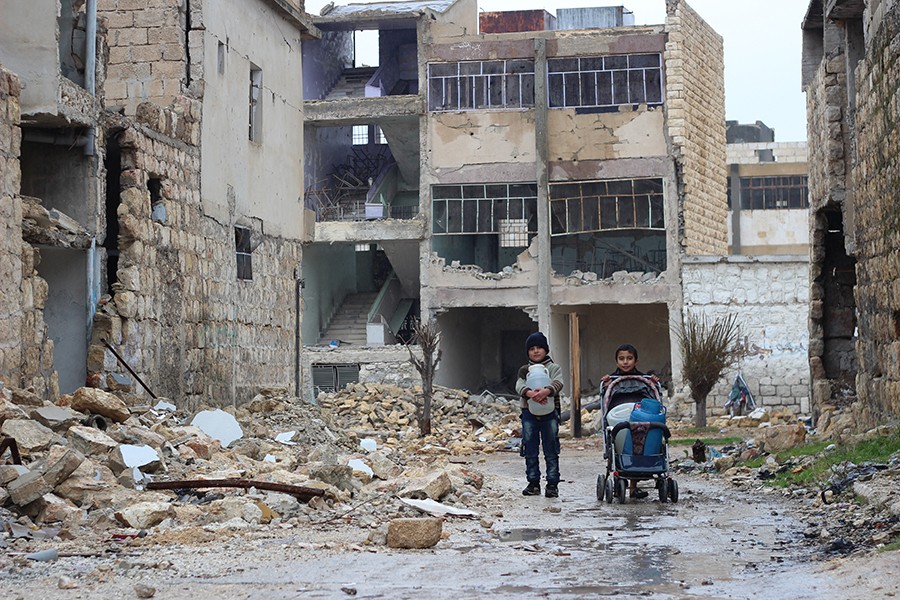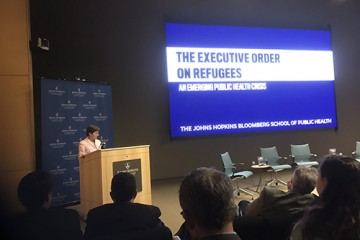2016 was the deadliest year on record for children in Syria since the start of conflict there six years ago, a new report from children's organization UNICEF declared today. Children are conscripted into the military and forced to engage in combat, serving as prison guards, suicide bombers and executioners. They are killed in their homes, in their schools, and in hospitals.
In a recent interview for Hopkins Bloomberg Public Health magazine, Johns Hopkins professor Paul Spiegel, who directs JHU's Center for Humanitarian Health, says the conflict has "forged a new low in brutal repression," and has "forever changed the nature of humanitarian response."
And, he adds, there's no end in sight.
"There's nothing temporary about the Syrian conflict," he says. "It has already lasted more than five years and shows no signs of ending."
Going forward, Spiegel sees three important actions governments, organizations, and agencies must take in order to address displaced people during a humanitarian crisis.
"First, we must integrate displaced people into their host country's national systems. This starts with health care," he says, adding that incorporating refugees into a host country's educational system and labor force are also essential. Building the infrastructure to support the influx of people into the health care, labor, and education systems costs money, but it benefits a host country's economy overall.
Second, Spiegel suggests that host countries and humanitarian organizations have an understanding of which relief efforts and enterprises are the most cost-effective and sustainable.
Also see
"There are a lot of interventions in humanitarian relief, but there's a lack of solid data to know how effective and efficient they are," he says. Having that baseline understanding of which programs work best helps organizations and governments strategically allocate funding.
"Third, we need to invest in better and more effective coordination, big time," Spiegel says. "Too many sectors and too many organizations get involved in the acute phase when there is a lot of money and media attention. ... I'm thinking of the mom and pop organizations that flooded into Haiti after the earthquake and didn't have the necessary experience. There needs to be an effective command and control system for responding to emergencies that allows for prioritization and clear decision making."
Ideally, Spiegel says organizations would also dedicate efforts to developing leaders who are able to coordinate aid at the beginning of a humanitarian emergency.
"The world, and all of us individually, have failed the people of Syria. We should be ashamed," he says. "It's our responsibility to do a better job helping them and all displaced peoples, now and in the future."
Read more from Hopkins Bloomberg Public HealthPosted in Health, Voices+Opinion
Tagged syria, refugee crisis, center for humanitarian health










